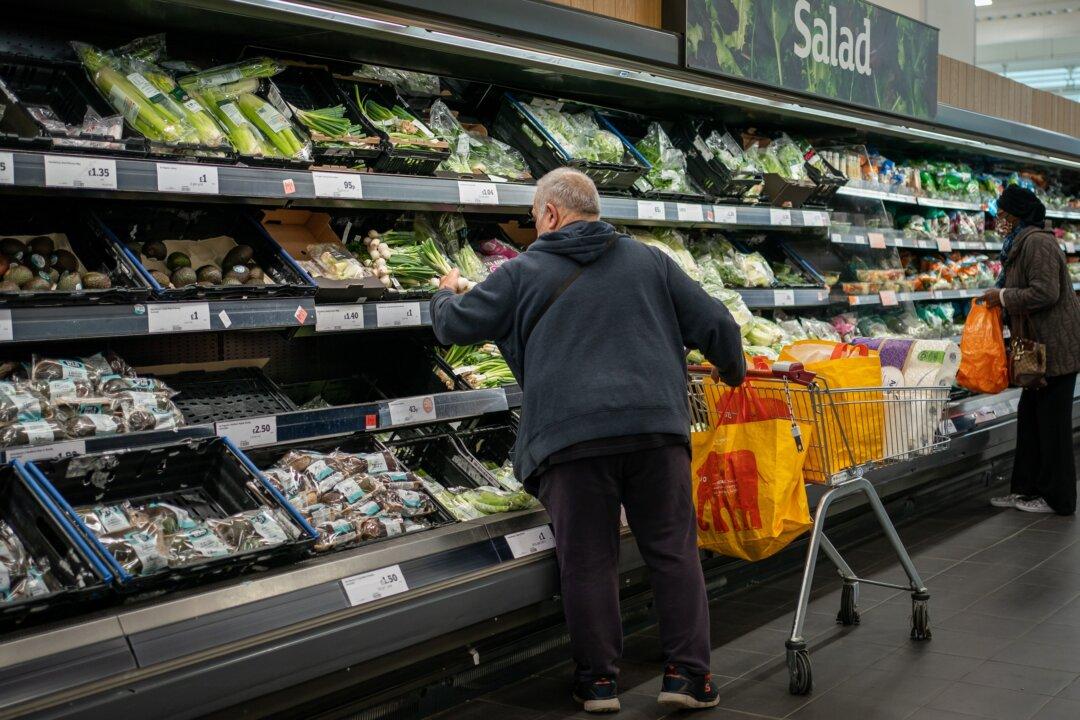Food and drink prices soared last month at the fastest rate for 45 years despite slowing inflation rate in the UK, latest official figures show.
According to the Office for National Statistics (ONS), food prices increased by 19.1 percent in March year-on-year, the sharpest jump since August 1977.





